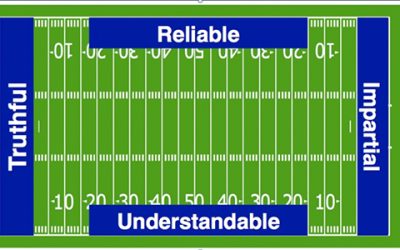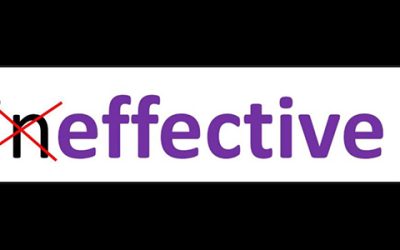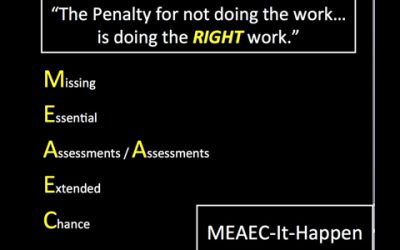Webinars:

Not All PLCs are Created Equal with Bruce Potter & Dave Nagel

Ed Web Grading For Impact April 2025
Podcasts:
Grading Resources
Teacher clarity is essential for effective classroom practices like assessment, feedback, and grading. Without it, students struggle to take ownership of their learning. Grades should provide meaningful feedback on progress. Guskey and Brookhart emphasize that clarity is crucial for evaluation; ambiguous measures lead to poor decisions (Guskey, 2024). Fendick (1990) and Titsworth et al. (2015) identify four components of teacher clarity: organization, explanation, examples and guided practice, and assessment. To implement this model, we introduce the Clarity of Grading Scoring Guide (CGSG) and Generative Learning Experiences Template. These tools help teachers and PLC teams create a progression of tasks for surface, deeper, and transfer learning while offering guidance for scoring and grading to accurately reflect student understanding and achievement.
CGSG Template & Purpose
Middle School PE 1
HS Social Studies Common And Positive Law
HS World Language
Middle School Math Example
CGSG - Earth & Space Science Unit
SDT Generative Learning Experiences Guide
PLC / CETeam Resources
CETeams Performance Rubric
recent posts
The Importance of Clarity in Grading
This article was originally posted on Corwin-Connect.com { See Original Article Here } When asked about their grades, students often respond, “I don’t know!”—not out of dishonesty, but due to a lack of clarity in grading. When you ask teachers what their biggest...
Three Actions to Successful and Deep PLC+ Implementation
This article was originally posted on Corwin-Connect.com { See Original Article Here } Schools and districts looking to implement initiatives like Professional Learning Communities (PLC+) must realize there isn’t one recipe for success. Successful implementation...
Three Reasons Activators are Crucial for Your PLC Success
This article was originally posted on Corwin-Connect.com { See Original Article Here } Picture this scenario: You have a PLC team that has every reason to be a success. The team is full of strong, passionate teachers committed to students’ learning. They have common...
Practice Trumps Policy (Part 2 of 4): Using Parameters to Drive Grading Decisions & Increasing Teachers Grading Playing Field
Practice Trumps Policy (Part 2 of 4): Using Parameters to Drive Grading Decisions & Increasing Teachers Grading Playing Field There are many conversations being started or continuing recently related to grades and grading practices: Teachers Throwing Out Grades,...
Practice Trumps Policy: (Part 1 of 4) Impeding Effective Formative Assessment
Effective Grading Lead by Realization That Practice Trumps Policy: Impeding Effective Formative Assessment Part 1 of 4 Many school & district leaders are putting a great deal of time, effort, & resources in attempts to drive changes in school & classroom...
Practical Failure Prevention Strategy–MEAEC-IT-Happen!!
Part 1: Practical Failure Prevention Grading Strategy Example: MEAEC-It-Happen! Ensuring ALL Student Work IS Essential As the new school year begins there are many possibilities for the coming year & few definitive truths. One truth is that students are going to...






